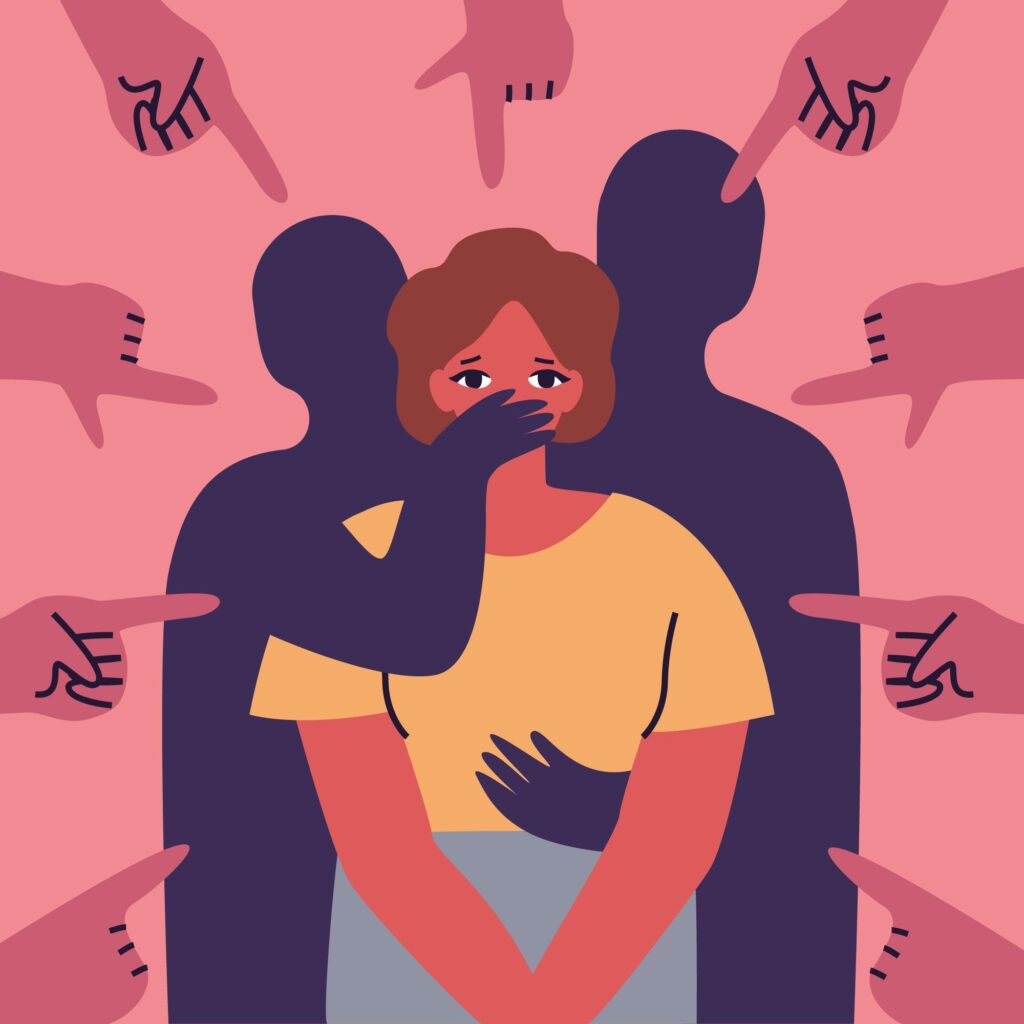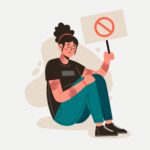Misogyny – Making a Stand Against Hate

You might have heard the word ‘misogyny’ being used a lot recently with headlines about ‘influencers’ like Andrew Tate and allegations of a toxic, sexist environment at the Welsh Rugby Union. But do you know what it means? Our blog explains misogyny and why you should stand up against it, whatever your sex.
This article is also available in Welsh. I ddarllen y cynnwys yma yn Gymraeg – clicia yma
What is misogyny?
Misogyny is a feeling of hatred or prejudice towards women, a belief that men are better than women. You may hear the words sexism or gender or sexual discrimination being used too.
Misogyny and sexual harassment are linked. Behaviour can include name-calling, non-consensual touching and sexual assault.
Some believe that misogyny is endemic (it is constantly present) all around us – in schools, at work, at home, in sports, online etc.
Here is just a small selection of misogynistic behaviour towards girls at school or college:
- Calling a girl a whore or a slut
- Making sexual comments
- Pushing, grabbing, rubbing against or groping
- Demanding nudes and being aggressive if a girl doesn’t send them
- ‘Banter’ – “boys are stronger than girls” or “a woman’s place is in the kitchen”
- Thinking someone’s opinion isn’t as important because she’s a girl
- Commenting on someone’s body
- Joking about sexual abuse and violence – “she should be raped to put her in her place”
- Upskirting
- Victim blaming – “she was asking for it dressed like that” or “she must have done something to lead him on”
- Sharing sexual images or videos of girls between friends or online
- Slut shaming girls that send nudes or have sexual relationships
- Comments like “you look prettier when you smile”
- Wolf whistling
How common is it?
A Sexual Harassment Report by UN Women United Kingdom says that 86% of 18-24 women said they had experienced sexual harassment in public spaces. Research by Plan International UK reveals that 58 per cent of girls aged 14-21 have been publicly sexually harassed in a learning environment.
A study by UK Feminista and the NEU shows that misogyny is very common in UK schools. 64% of teachers say that they hear sexist language in school on at least a weekly basis.
Everyone’s Invited is a website full of testimony from people who share their experiences of sexual abuse and harassment at educational establishments in the UK. They have had to pause publishing new experiences on their website as they can’t cope with the number of testimonies sent in, with over 50 thousand experiences already shared.
Why is misogynistic behaviour at school a problem?
‘We don’t tell our teachers’, a report from Estyn, found that sexual harassment is normalised in schools and is almost expected. Because of this, and the belief that teachers don’t take it seriously, students are not reporting misogynistic behaviour.
What if this behaviour is tolerated at school, and there are no consequences? It normalises this behaviour, which means it could carry on into adult life. This can be harmful to girls. It could lead to depression and low self-esteem and discourage them from trying certain things.
In extreme cases, boys believing they are superior to girls can lead to rape and sexual assault.
What should I do about it?
One of your human rights is freedom from discrimination (Article 14 of the Human Rights Act). Acceptance will normalise it and make people think it’s ok. Don’t accept it. Stand together against it and tell someone if you see it happening or if it is happening to you.
It isn’t just those that it’s happening to that should be making a stand against misogyny. Male or female, we should all stand up against this behaviour. If you hear your friends using misogynistic language or behaviour, then tell them it isn’t right, it’s not funny, and they shouldn’t talk about girls that way.
Report it. Tell someone if it is happening to you. Tell a teacher, your parents, or an adult you trust.
Sexual abuse and sexual assault is a crime (and so are some cases of sexual harassment). If this has happened to you, you can report it to the police on 101 or contact an organisation like Rape Crisis or Victim Support.
If someone has posted a nude image of you online then use the Report Remove tool on the Childline website here. This is a tool for young people to get their image or video removed from the internet.
Talk to Meic
If you’re struggling to talk to someone, then check out our blog for advice or talk to our friendly advisers on the Meic helpline, who can help you talk to someone.
Meic is the information, advice and advocacy helpline for children and young people across Wales. Contact Meic if you need to talk to someone about anything that’s worrying or upsetting you. It’s free, confidential and anonymous. The service is open from 8am-midnight every day, and you can contact them by phone, WhatsApp Message, text, or online chat.























